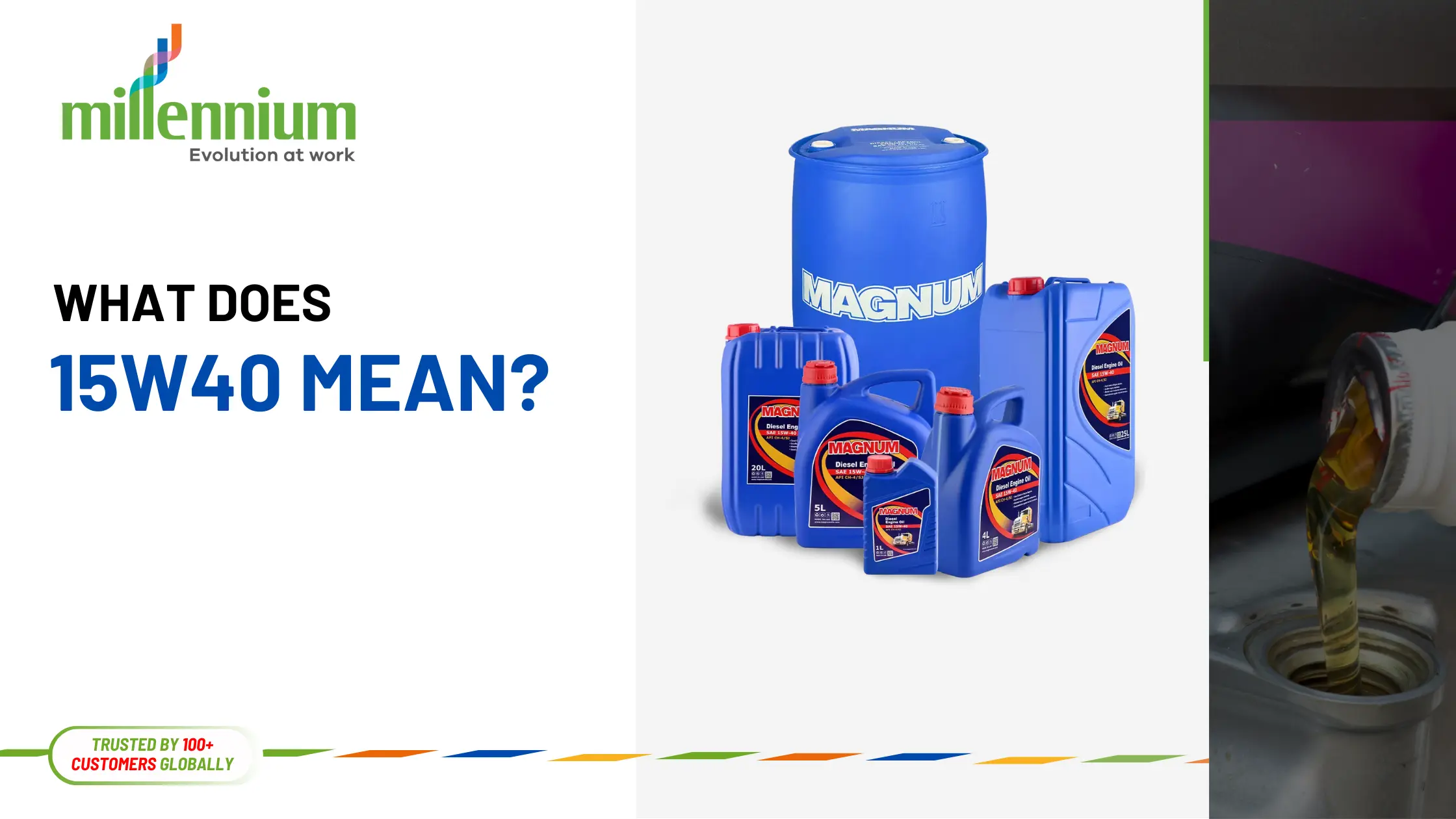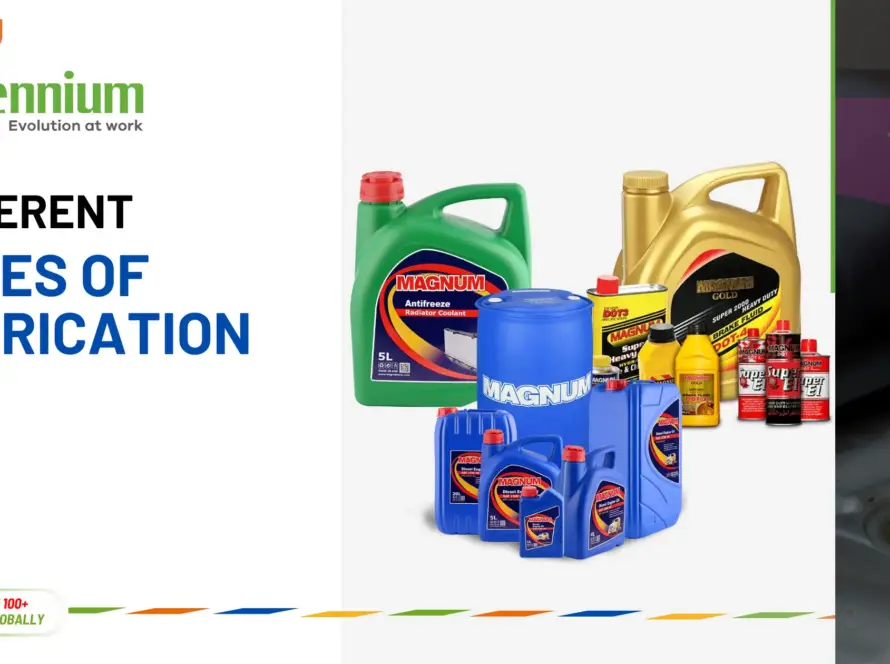When a car owner reads the label 15W40 on an engine oil bottle, it means the oil is designated a certain viscosity – the thickness of the liquid and how easily it runs under certain conditions. This standardized grading, defined by the Society of Automotive Engineers (SAE), consists of two components: “15W” and “40.”
These figures define how the oil will respond during freezing or hot conditions and thus safeguard your engine throughout the year. Through both very cold and hot temperatures of winter and summer, respectively, one is guaranteed efficiency of 15W40.
Understanding Oil Viscosity Ratings
Factors such as viscosity are very important in the case of engine oil, which refers to the measure of that fluid’s resistance to flow. The higher the viscosity, the greater the protection at high temperature; less viscous oils are used to overcome potential cold-start problems, notably the rapid gear tinkling of FG 224. The number classification system for engine oil, like 15W40, describes the nature of the oil as a temperature range.
The “15W” concerns the oil’s Winter, that is, its thickness in cold conditions. Hence, the bold number before the letter ‘W’ indicates thicker oil, which circulates more easily when the engine is cold, while a low number before W means thinner oil, which easily circulates when the engine is cold. For 15W40, the ‘15W’ checks that the oil remains fluid at least down to -20°C (- 4° F), therefore good for moderate winter.
On the other hand, the “40” refers to the oil’s viscosity when used at operating temperatures, which are 100°C or 212°F, in this case. A higher number here means thicker oil and provides extra protection to the engine parts during high temperatures and while performing a heavy load.
This is why 15W40 is a multi-grade oil, as it can switch between both grade densities in response to the climate and the mechanical requirements of the vehicle. Its synthesized structure enables the cars to function optimally in extreme temperatures without degrading their performance.
How 15W40 Oil Performs in Different Temperatures
In essence, the flexibility of 15W40 oil is in its ability to provide the right viscosity consistency no matter the climate. In cold climates, it ensures that there is enough flow to lubricate vital parts of the engine, particularly when starting. But it does not perform very well in sub-zero temperature as some other lighter oil, such as the 5W30 or 10 W30. During heat, 15w40 does not deploy and becomes too watery, thus granting a layer of protection between parts and decreasing friction and wear. It also provides dual-temperature performance that is necessary for vehicles that operate in volatile environments such as towing, hauling or long-distance transport services.
Common Applications of 15W40 Oil
15W40 oil is very suitable and can be used in different sectors and varieties of automobile mechanisms. It is widely used in high and heavy-duty diesel engines utilizing transport vehicles, tractors, or similar equipment. The oil’s thick molecular structure provides a perfect solution for engines with high usage and excessive load demands. Besides, it is commonly utilized in industrial equipment regardless of the application type, whether it is generators or construction tools that require regular lubrication.
For passenger cars, 15W40 is appropriate for older models or cars used in regions with relatively high temperatures. Keeping good viscosity when the temperature is high will offer adequate protection to those engines that are usually hot or overworked. Besides, it is usually the first choice by fleet operators and business people whose operations involve the use of vehicles because of its cost-effectiveness and performance guarantee.
Comparison: 15W40 vs. Other Oil Grades
When comparing 15W40 with other classes, such as 10W30, the major difference arises in cases of viscosity and their applicability to certain conditions only.
15W40 vs. 10W30:
- Since 10W30 is thinner in freezing conditions than 5W30, it is better for cold starts than the other. Nevertheless, 15W40 is more protective in high temperatures and suitable for high-stress or high-performance engines.
15W40 vs. 5W30:
- In very chilly environments, 5W30 gives better startup protection, while at high temperatures, it may not offer the protection offered by 15W40.
- Which oil to select depends on the car’s type, climate, and conditions in which it is operated. 16W40 is still popular for heavy use and hot weather, as is 15W40.
Frequently Asked Questions About what does 15w40 mean
Can 15W40 oil be used in all vehicles?
Is 15W40 suitable for very cold conditions like -15 degrees cold?
What is the difference between synthetic and conventional 15W40 oil?
Can 15W40 be mixed with other oil grades?
How often should I change 15W40 oil?
Conclusion
The meanings of the 15W40 and the performance capabilities presented in this article help provide relevant details for the car’s maintenance. Its ability to act as both a heavy and semi-synthetic company makes it recommended for extreme pressure or use in old cars, especially during the cold seasons. It may also be used to determine how the oil works in various weather conditions and how much better it is than other grades, such as 10W30, 15W40 is a reliable and versatile oil grade. For anybody who uses vehicles or equipment that require constant optimum performance irrespective of the conditions, 15W40 is a good product.



